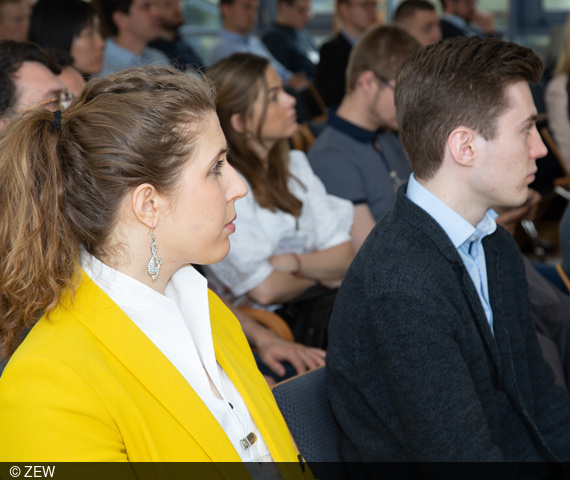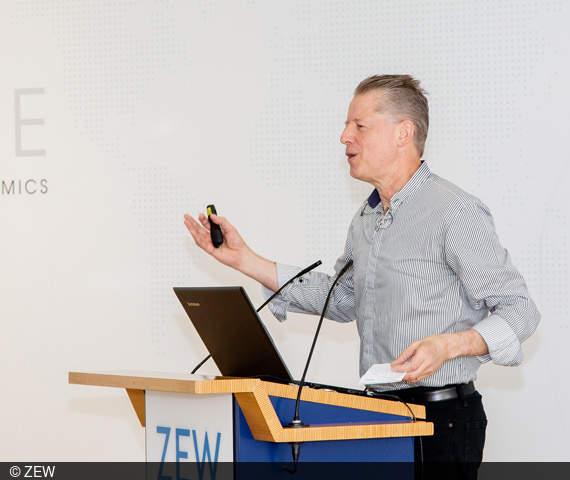ZEW Conference on European (Dis)Integration
European IntegrationOn 2 and 3 May 2019, the ZEW – Leibniz Centre for European Economic Research and the Collaborative Research Center SFB 884 “Political Economy of Reforms” jointly organised the annual ZEW Public Finance Conference. The focus of this year’s conference was on the political economy of European (dis)integration. Approximately 100 participants attended the two-day event in Mannheim to discuss this and other topics of public finance and political economy.
The first keynote delivered by Sascha Becker, professor of economics and Deputy Director of the Centre for Competitive Advantage in the Global Economy (CAGE) at the University of Warwick, UK, focused on the far-reaching consequences of migration. In an overview of current studies, Becker stressed the different effects of forced migration, triggered by wars, displacement or natural disasters, as well as voluntary migration, which is often based on cost-benefit considerations. On this basis, he presented a study in which he examined the effects of forced migration on investment in human capital. Although this question has been investigated many times, it is difficult to isolate this effect from socio-economic and cultural influences.
Becker and his co-authors have solved this problem with the help of an empirical case study, by examining the forced migration of millions of Polish people through the shifting of national borders after the Second World War. The comparison of migrated Poles with other Poles shows that those, who were forced to migrate, have invested in the mobile asset that is education over three generations and thus have a higher level of human capital than other Poles. This result is also relevant for current policies, implying that war refugees should be given easy access to education.
More optimism in Europe
Andrew Moravcsik, professor of politics at Princeton University, USA, gave the second keynote speech, which discussed various aspects of why Europe should be less pessimistic about its own situation. He emphasised Europe’s great global influence, thanks to numerous alliances, its strong role in international development cooperation and its successful security policy. He also stressed that Europe’s response to the refugee crisis from 2015 onwards had also been successful in many ways. Even the rise of populist parties is less severe than generally assumed according to Moravcsik: „Populism is more bark than bite.” With regard to euro and macro policies, Moravcsik pointed out that the euro has not yet collapsed, but that still nobody would introduce it again today. He predicted that unresolved problems surrounding heavily indebted states will pose a challenge for the integration process in the future.
Cutting-edge research on the political economy in the EU
Over the course of 16 sessions, international researchers presented and discussed further cutting-edge research results. The presentations focused on various areas of taxation, public finance and political economy. In addition to lectures on optimal income taxation, tax avoidance, euro area reform and fiscal federalism, several speakers focused on the main topic of the conference by presenting their research on the political economy of EU funds, populism, lobbying, immigration and democracy.



